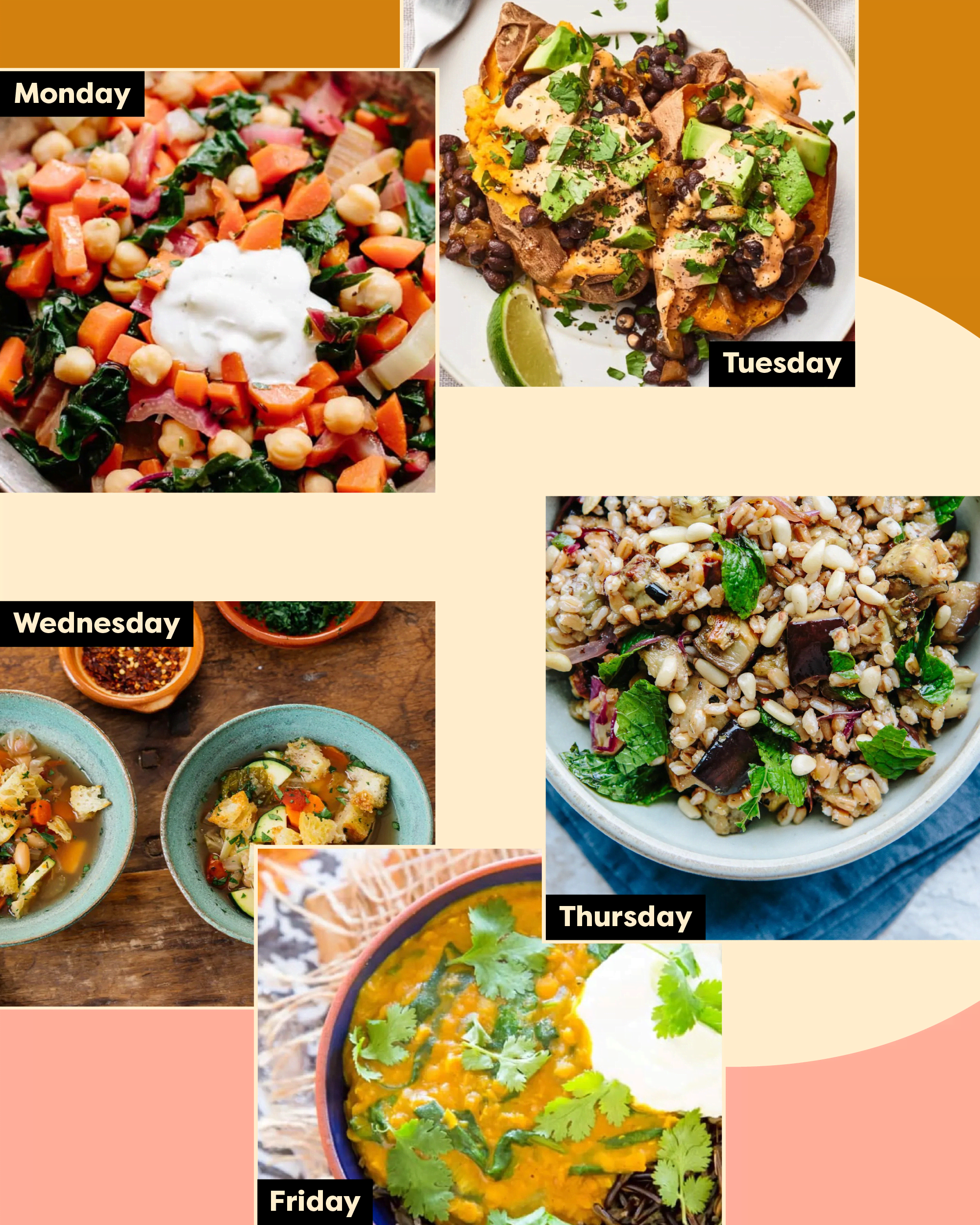Viva Resa: Your Gateway to Insightful Living
Discover news, trends, and tips for a vibrant lifestyle.
Veggie Wonderland: A Delicious Journey into Plant-Based Eating
Discover vibrant recipes and tips for tasty plant-based living in Veggie Wonderland. Your delicious journey to healthier eating starts here!
10 Essential Tips for Transitioning to a Plant-Based Diet
Transitioning to a plant-based diet can be a rewarding journey for your health and the environment. Here are 10 essential tips to help you make the switch smoothly:
- Educate Yourself: Understanding the benefits of a plant-based diet will keep you motivated.
- Start Slowly: Gradually reduce meat and dairy from your meals to prevent overwhelming yourself.
- Plan Your Meals: Pre-planning allows you to incorporate a variety of nutrients.
- Experiment with Recipes: Try new ingredients and cuisines to keep meals exciting.
- Stock Up on Essentials: Fill your pantry with legumes, grains, nuts, and seeds to always have healthy options on hand.
Persistence is key when making lifestyle changes, so remember these additional tips:
- Find Community Support: Connect with friends or online groups who share similar dietary goals.
- Listen to Your Body: Pay attention to how different foods make you feel and adjust accordingly.
- Don’t Be Too Hard on Yourself: Everyone slips up; what matters is sticking to your goals in the long run.
- Celebrate Your Progress: Acknowledge the small victories along the journey to stay inspired.
- Keep Learning: Stay informed about plant-based nutrition to ensure you’re meeting your dietary needs.

Exploring the Benefits of Plant-Based Eating for Health and Sustainability
Plant-based eating has gained significant attention in recent years, offering a multitude of health benefits that can transform your lifestyle. Studies suggest that a diet rich in fruits, vegetables, whole grains, and legumes can help reduce the risk of chronic diseases, including heart disease, diabetes, and certain cancers. By incorporating more plant-based foods into your meals, you not only enhance your nutritional intake but also create a sustainable approach to health that resonates with the growing awareness of food choices and their environmental impact.
Adopting a plant-based diet contributes to sustainability by minimizing the ecological footprint associated with animal agriculture. The production of plant-based foods typically requires fewer resources such as land and water and generates lower greenhouse gas emissions. By shifting towards plant-based eating, you are actively participating in a global movement aimed at combating climate change and conserving precious natural resources. Here are some key sustainability benefits of plant-based eating:
- Reduces deforestation and habitat loss.
- Decreases water consumption.
- Lowers carbon emissions.
What Are the Best Plant-Based Protein Sources?
When it comes to incorporating more plant-based protein sources into your diet, several options stand out as both nutritious and versatile. One of the top contenders is lentils, which not only provide about 18 grams of protein per cooked cup but also offer essential nutrients like fiber, iron, and folate. Other excellent sources include chickpeas, which can be enjoyed in salads, soups, or as hummus, and boast around 15 grams of protein per cooked cup. Additionally, quinoa is a complete protein, meaning it contains all nine essential amino acids, making it an ideal choice for those following a vegetarian or vegan diet.
Don't overlook the power of nuts and seeds when considering your protein intake. They are not only rich in protein but also provide healthy fats. For instance, hemp seeds contain about 10 grams of protein per 3 tablespoons, while chia seeds provide approximately 5 grams of protein per ounce. Furthermore, tofu and tempeh, both made from soybeans, are incredibly versatile and can be used in a variety of dishes, offering around 20 grams of protein per cup for tofu and an impressive 31 grams per cup for tempeh. Incorporating these plant-based protein sources into your meals can enhance nutritional value while supporting a healthier lifestyle.